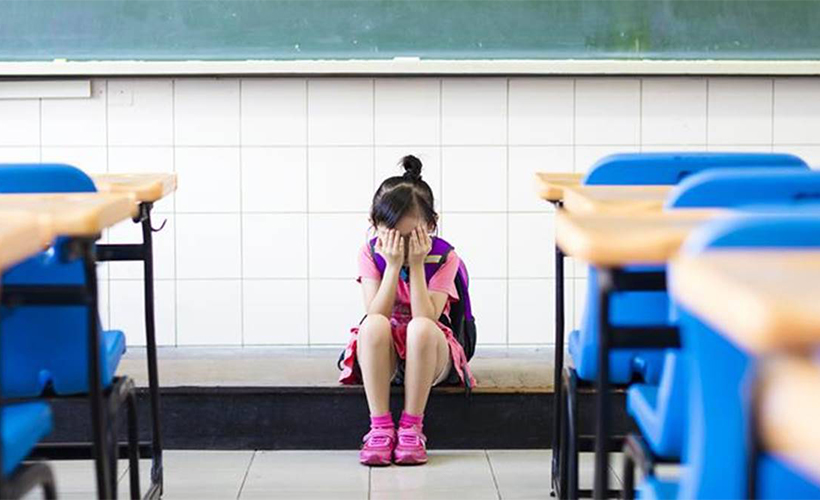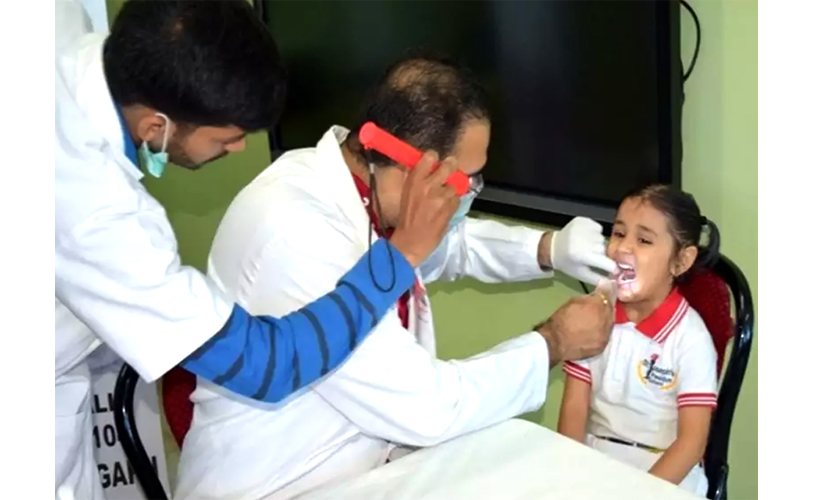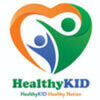Healthy Corner
Anxiety In Children
Expert View: How to spot signs of depression and anxiety in kids
Healthy Mind in a healthy body.
Dr Amrita N Shamanewadi MD, PGDFM shares her views on importance of mental wellness and how to spot the problems in kids. She is associated with Trawello Healthcare (healthykid.in) as part of their Expert Panel
“Worrying doesn’t empty tomorrow of its sorrows; it empties today of its strengths”. Corrie ten Boom
Mental wellness is important for all of us to lead a happy healthy life. Unfortunately, mental illness is taboo and the most neglected world over leading to untold suffering. Children too have worries and fears, can feel sad and hopeless at times. Parents should closely monitor their kids and protect their kid’s mental well-being.
Anxiety and depression affect children from functioning well at home, school or other social situations. Globally, Prevalence of diagnosed juvenile anxiety is as high as 7.4% and 3.2% for depression. Undiagnosed cases is estimated 2 to 4 times higher. These numbers are scary and should make parents sit up and take notice.
We can’t let our next generation wilt during adolescence. Gadget addiction, online bullying and increased screen time is worsening the situation. Symptoms of mental health illness are different in children and very difficult to identify. The symptoms differ by age and their inability to express the feelings makes it hard to spot the illness.
Feeling sad occasionally is part of every child’s life. However, following observations can indicate if the child is symptomatic of depression.
• Irritable or violent behavior
• Disinterest in fun activities which it enjoyed earlier. • Change in sleep pattern and eating habits
• Loss of concentration and dip in academic performance
• Showing signs of self-injury or suicidal tendencies
Anxiety is different from depression. Anxiety is a condition when a child does not outgrow the fears. Anxieties can be of several types:
• Separation: Afraid when away from parents • Phobias: Child is extremely scared of lizards, insects, etc Some kids have school-phobia and are afraid to go to school
• General anxiety: Worrying all the time about future
• Social anxiety: Afraid of crowded places. • Panic disorder: Repeated episodes of fear with symptoms like pounding of heart, shaky limbs, heavy breathing and giddiness.
In mental illness, the biggest step is timely identification and diagnosis. Once parents understand the root cause, therapy can start the healing process. Kids should feel that they can freely share their feelings with parents. Parents play an important role in taking care of child’s mental health issues during the treatment.
Let’s look at the healing options for depression or anxiety.
a) Psychotherapy/Counselling: Psychologist or psychiatrists talk to the kid, understand and help address the issue. Children often open up about their problems to counsellors which they do not share with parents.
b) Medications: Psychiatrists may prescribe drugs like anti- depressants, anti-anxiety, stimulants, anti-psychotics or mood stabilizers. These medications can be in addition to the counselling.
As parents we need to talk to the kids, recognise the symptoms early and help them get over the anxiety/depression. It is also good to work with your child’s school to secure necessary support from the school teachers. Let’s resolve to make mental wellness a priority.
Children Reading
Expert View: Role of reading habit in Child Development
Books are our best friends. Dr Amrita N Shamanewadi MD, PGDFM shares her views on role of reading habit in child development. She is associated with Trawello Healthcare (healthykid.in) as part of their Expert Panel
“A reader lives a thousand lives before he dies. The man who never reads lives only one”. George Martin.
Habit of reading lays a solid foundation for kids’ future. Child’s mind is like an empty slate and reading habit inculcated from beginning will be retained throughout their life. “Leaders are readers”, Harry Truman aptly said. Books are their best friends and can mould them into good citizens. With diverse and abundant genres, books open the mind & help children grow into inspiring, cheerful, creative and intelligent adults.
Let’s look at some of the benefits of reading:
• Helps developing good vocabulary, language & communication skills
• Aids brain development by improving memory, attention span & concentration
• Boosts imagination and creativity
• Helps in relaxation and is a great stressbuster
• Acts as saviour in boredom and great distraction from gadget addiction.
• Enables academic success.
Habit of reading can start before the kid turns ONE. Parents can start with colourful picture books having interactive features like pop-ups and sounds. As they start picking up 2-syllable words, books about family members, things at home are ideal.
From age of One, kids start understanding sentences and parents can read out interesting stories to them. Make it a fun learning experience prompting your child to imitate the sounds. Colourful board books depicting fruits, vegetables, animals, alphabets will be appropriate.
For school kids, there are more book options. At this age, they need to get into daily habit of reading books for atleast 30 minutes. Books about mythology, fairy tales, general knowledge are recommended. Adolescents can truly befriend the books as they open their mind to new views, ideas, experiences and concepts. They can enjoy books like mythology, thriller stories, detective stories and biographies.
Books need not always mean the printed version. Choice of print or ebook lies with the person as both have their pros and cons. Print edition give the feel of real book where you turn the pages, hold the book and feel the paper. For people who like to read as they fall asleep, paper books are better. Print books are easier on eyes and cause less eye strain than eBooks.
On the other hand, eBooks are less expensive, more accessible and all stored in single device. A huge library can now be accommodated in a pen drive. End of the day, it is a personal choice between print or eBooks.
So, gift your child with a good book and encourage them to start reading. It is said that “a person who does not read when he can, is no different from a person who cannot read at all.” It is never too late. Let’s encourage our kids to Read, Lead and Succeed.
Oral Health Care
Expert View: Oral healthcare in children during Covid pandemic
Oral healthcare is one of the neglected areas of preventive wellness. Pedodontics specialist Dr Jayasudha Kalgudi MDS, shares her views on kids’ oral hygiene and its importance in the current pandemic. She is associated with Trawello Healthcare (healthykid.in) as part of their Expert Panel
The COVID pandemic has affected everyone on the planet. The fear of catching the virus has prompted folks from avoiding hospitals and clinics for the regular preventive health check-ups. Oral healthcare has taken a hit. Let’s take a look at how to take of oral health during the pandemic.
Did you know that a healthy oral cavity acts as a barrier against all kinds of infections (including COVID-19). Normal salivary flow and salivary enzymes can aid host defence mechanism against viral infections & replication. The anti-viral effect of certain enzymes against herpes and coronavirus is well documented (Magister &Kos, 2013).
Generally, the prevention of oral diseases in children is based on regular check-ups and oral hygiene education. During the pandemic, it is difficult to manage regular follow-ups of dental consultations. Parents need to focus on prevention on orodental conditions aided by online awareness programs.
Effective home oral hygiene measures can prevent most prevalent oral diseases in children like dental decay. Parents should ensure children brush their teeth twice daily for two minutes using fluoride-based toothpaste. Dental floss is highly recommended in tooth exchange phase associated development of permanent teeth. Regular flossing can clean areas between the teeth to remove plaque, bacteria while keeping teeth and gums healthier.
Parents’ awareness of carioprotective and cariogenic properties of specific foods is important. Diet rich in fruit and vegetables protects from onset of decay and offers mechanical protection by stimulation of saliva. Length and frequency of child’s teeth exposure to sugar and sticky food (like chips, cookies and crackers), increases the risk of cavities. During pandemic, children are staying at home. Hence, consumption of junk food and high sugar content need to be restricted. Soft drinks with acidic content produce dental erosion and makes the tooth weaker and prone to decay.
Kids below 5 years are susceptible to early childhood caries. Parents should avoid night feeds and pacifiers dipped in honey/sugar etc used to encourage child’s sleep. Finally, parents’ oral health can have a protective effect for child and reduce the risk of mother-child bacterial transmission in this age group.
While the above preventive measures are helpful, parents need to know certain conditions in which a child requires immediate care. Acute dental pain that keeps them awake at night, traumatic injuries to teeth and soft tissues, swelling and loosening of teeth mandates a dentist visit. It is okay to visit the dentist taking care of all the necessary precautions.
In general, correct oral health must always be combined with healthy lifestyle, thus contributing to good general health. Therefore, physical activity at home, sleeping for an adequate number of hours and proper nutrition & hydration throughout the day are strongly recommended. These strategies are essential to boost immunity during the pandemic.
Are your children getting enough sleep?
Expert View: Are your children getting enough sleep?
We fret when our mobiles are not fully charged. Dr Amrita N Shamanewadi MD, PGDFM shares her views on sleep hygiene and its importance in shaping kids’ health. She is associated with Trawello Healthcare (healthykid.in) as part of their Expert Panel
"Sleep is the power source that keeps your mind alert and calm. Every night and at every nap, sleep recharges the brain's battery." - Marc Weissbluth, Healthy Sleep Habits, Happy Child.
Sleep is a vital part of your child’s health, just like proper nutrition and exercise. A person should have sufficient, age appropriate amount of uninterrupted sleep. Sleep helps to develop proper mental and physical health of children and to restore all the resources which a child’s brain utilizes the whole day. A person who sleeps well is alert, has good concentration, energy and better problem-solving capability.
Circadian rhythm (body clock) is a 24-hour cycle that tells child’s body when to sleep. As your child grows, the amount of required sleep reduces. National Sleep Foundation recommends 9-11 hours of sleep for children aged 6-13 years. Similarly, for children of 14-18 years, 8-10 hours of continuous night sleep is required.
Lack of sleep can result in behavioural, physical health problems such as being drowsy whole day, tiredness, lack of interest in daily activities, depression, forgetfulness and learning difficulty. Lack of sleep can also cause excessive weight gain and blood pressure fluctuations.
There are 2 different types of sleep – Rapid eye movement sleep (REM) and Non- REM. REM sleep occurs 90 minutes after falling asleep. Non – REM sleep has 3 stages. First stage lasts for several minutes of relatively light sleep. Second stage is a period of light sleep just before entering deep sleep. Stage 3 is the period of deep sleep needed to feel refreshed in the morning.
Let’s review how parents can maintain their kids sleep hygiene:
• It is important to stick to fixed daily sleep time, even on weekends. Extra sleep during weekend does not compensate for sleep loss during weekdays.
• Children can sleep in the afternoon for a couple of hours. Afternoon does not compensate for reduced night sleep.
• A pre-bed routine will help in falling asleep quickly.
• Comfortable mattress and quality pillow support good sleep. Room temperature, ambient lighting and sound should be conducive.
• Encourage your children to disconnect from gadgets at least half an hour before bedtime.
• Ensure a gap of atleast 3 hours between dinner and bedtime.
• Parents can monitor the kid’s sleep quality using wearable such as Fitbit/smartwatch.
Sleep is vital but neglected component for a person’s overall health and well-being. As the famous saying rightly says “Early to bed, early to rise makes a person healthy, wealthy and wise”. Encourage your kids to sleep early and have a proper amount of sleep. So, let’s all improve our sleep habits and make sleep a priority.




